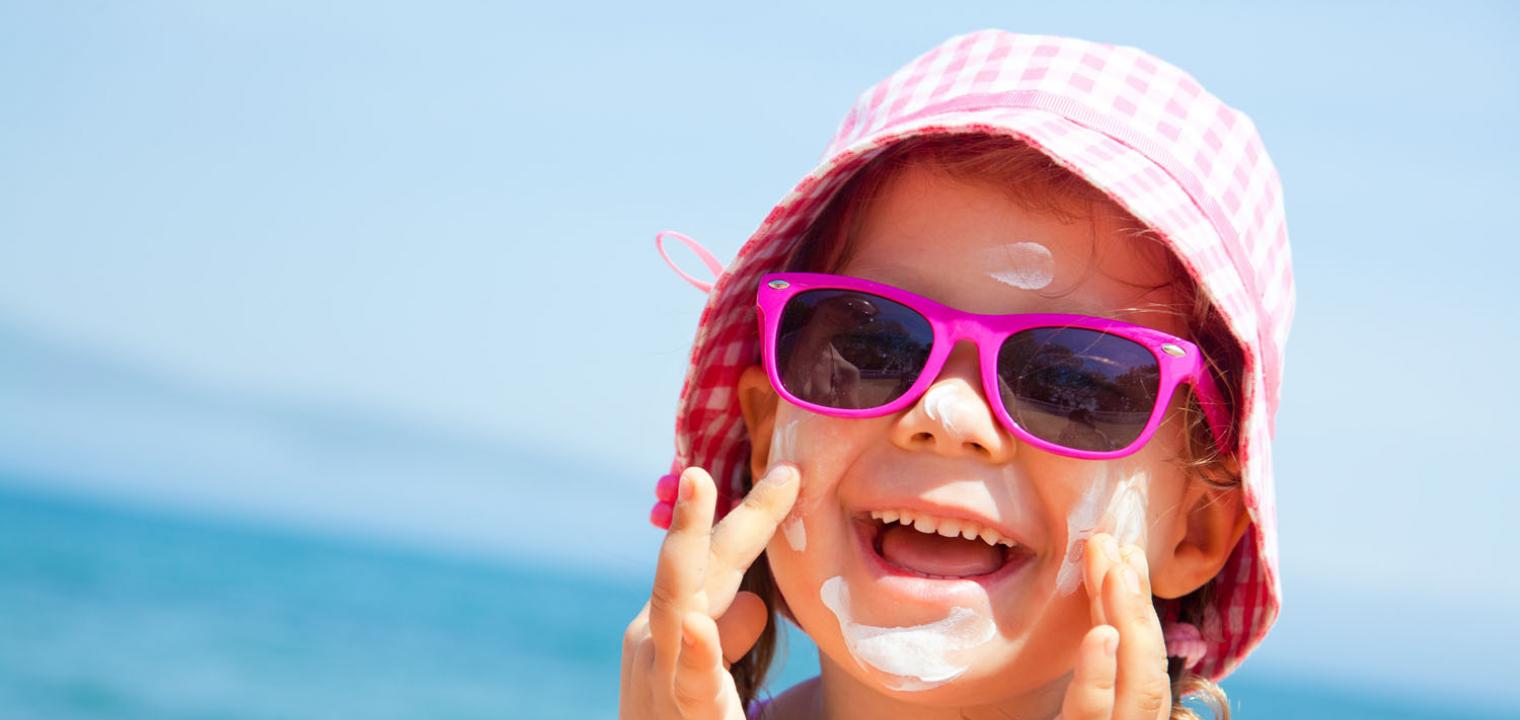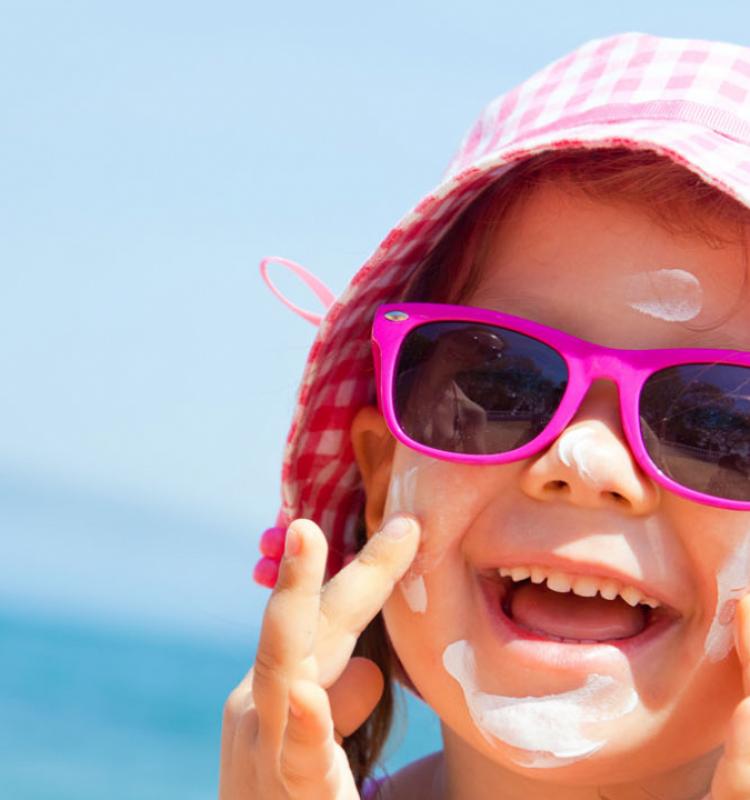WHAT ROLE DO SUNGLASSES PLAY IN PROTECTING YOUR VISION?
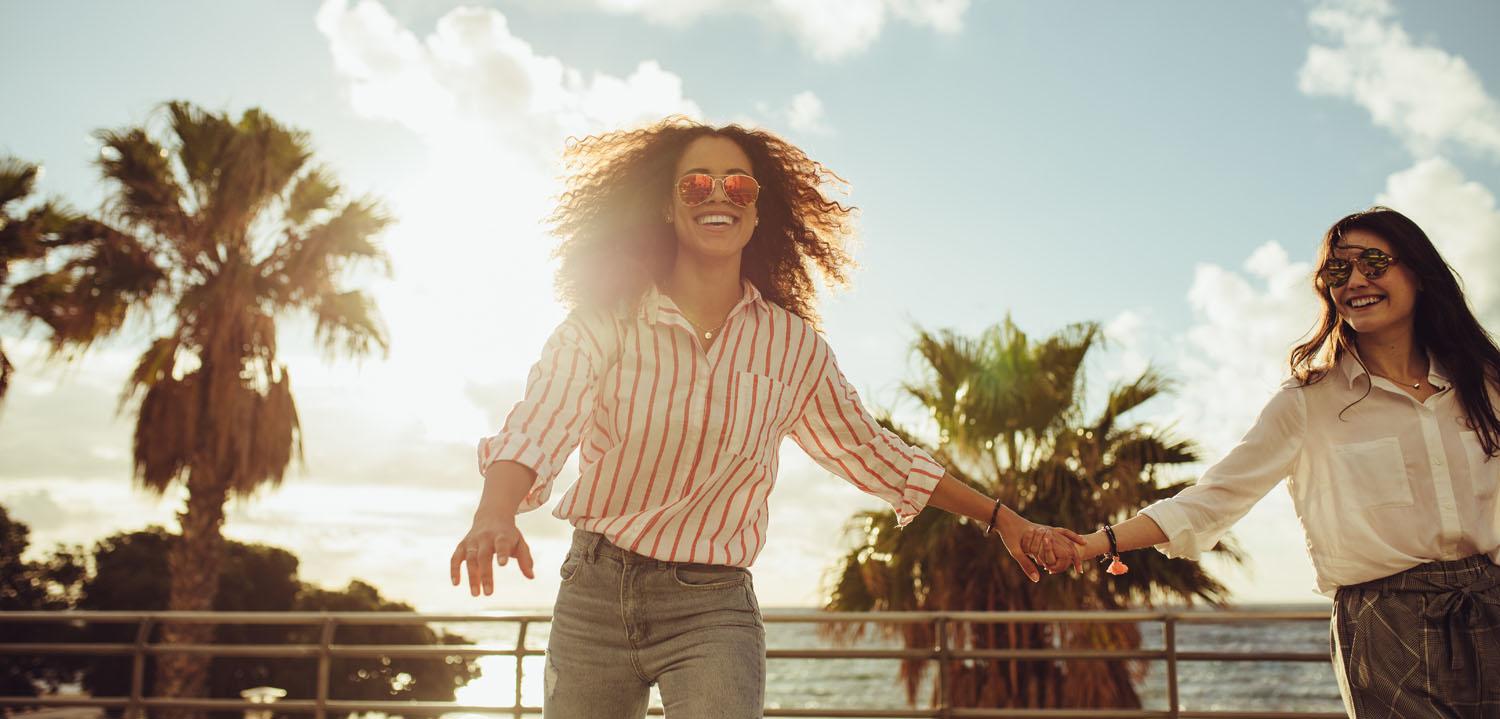
You have no doubt spent the last few weeks reaching for your sunglasses every time the sun comes out, but do you know why wearing sunglasses is so important? It’s not just to shield your eyes from the bright light; there are also huge health benefits to wearing sunglasses.
Whether you’re still counting down the days until your sunny holiday, or you’re going skiing in the winter season, your sunglasses are the best accessory you could pack. What’s more, with National Eye Health Week occurring next month, it’s a good time to know how to protect your vision all year round.
Sunglasses are a helpful aid throughout the year, not just for the summer months! After all, even in the depths of winter, the sun can still shine brightly. Especially over the next couple of months where you’ll face a low sun on the morning and evening commute.
UV levels may not be as high in the winter but the sun can still have a detrimental effect on your eye health over time.
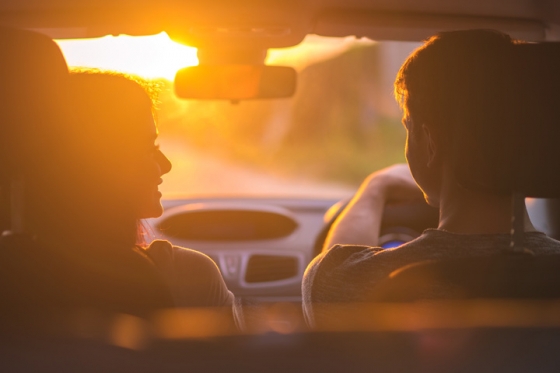
WHY DO I NEED TO WEAR SUNGLASSES?
On days where you have forgotten your sunglasses, you probably spend most of the time squinting while trying to see in the bright light; it can be very frustrating! Protecting your eyes from the sun will not only prevent this from happening, but can also help to reduce your risk of eye diseases such as cataracts and Age-related macular degeneration(1).
This is because too much exposure to UVA and UVB rays can put your eye health at risk(2). It’s important to invest in the right pair of sunglasses for your visual needs. There are a number of different types of sun lenses, including polarised, tinted and mirrored sunglasses all with different benefits and styles.
HOW DO SUNGLASSES PROTECT YOUR VISION?
Sunglasses don’t just shield your eyes from bright light to make you see easier. They are important tools for blocking UV rays and preventing them from reaching your eyes. Different types of sun lenses have varying benefits to suit your individual needs when it comes to sun protection for your eyes.
Polarised lenses are able to offer maximum protection against glare and UV light. Glare can be a problem all year round, with light bouncing off of flat surfaces such as roads, water, snow or ice. This can be incredibly dangerous if you are driving, or trying to ski down a mountain!
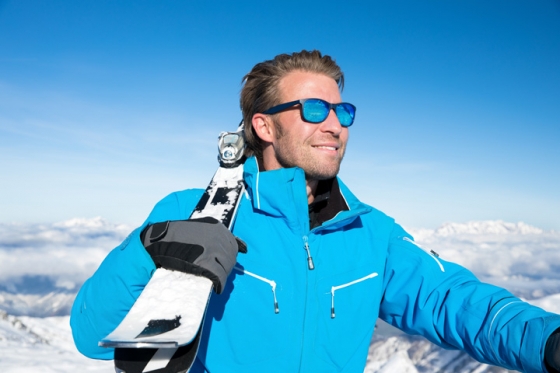
If you are often bothered by glare, it’s likely that you will experience it in winter as well as summer. It can be handy to have a pair of polarised lenses to hand for when the sun strikes. This type of lens will block out horizontal light that is reflected off of flat surfaces, therefore eliminating blinding glare. Xperio Polarised glasses have the highest level of UV protection in our range of lenses(3).
Tinted lenses are a stylish and effective way to protect your eyes from the sun. You can even have a graduated tint making your lenses practical and fashionable, with a dark tint at the top that gets increasingly lighter towards the bottom portion of the lens. Tinted lenses can help to restore natural colour perception, improving your vision while protecting your eyes from UV light.
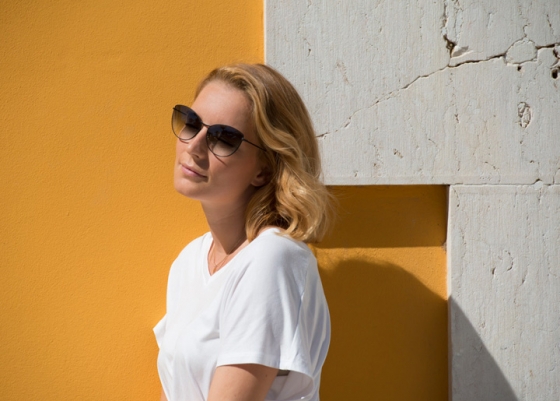
Choose from a range of colors like brown, grey, grey/green or burgundy for a pair of sun lenses that provide comfortable, protected vision while looking fashionable. They work by muting the brightness of the sun while maintaining clarity and contrast.
Add a mirror finish for a striking look. E-Mirror UV can be applied with Xperio Polarised and Essicolor tints so you can benefit from either eliminating blinding glare or glare reduction while upping your fashion game.
HOW DANGEROUS IS UV LIGHT FOR YOUR VISION?
UV exposure can differ depending on your location, environment and time of day or year. For instance, UV exposure is greater the closer you are to the equator, and it is greater when the sun is high in the sky; usually between 10am-2pm.
UV exposure occurs more in wide open spaces, and particularly around highly reflective surfaces. Did you know that your UV exposure could double if the UV rays are reflected off snow?
Even with low UV levels at 2 or less, it is still recommended that you wear sunglasses if you are out in the bright light. Overexposure can result in eye health issues that could have been prevented if the right measures had been taken; just as if you went out in the sun but didn’t put sun cream on.
(1) McCarty CA, Taylor HR. A review of the epidemiologic evidence. linking ultraviolet radiation and cataracts. Dev Ophthalmol. 2002; 35:21-31.
(2) McCarty CA, Taylor HR. A review of the epidemiologic evidence. linking ultraviolet radiation and cataracts. Dev Ophthalmol. 2002; 35:21-31. Sunlight and the 10-year incidence of age-related maculopathy: The Beaver Dam Eye Study. Arch. Ophthalmol., 122, 750-757. New discoveries and therapies in retinal phototoxicity, Serge Picaud et Emilie Arnault, Points de Vue N°68, Spring 2013.
(3) When combined with Crizal Sun UV

